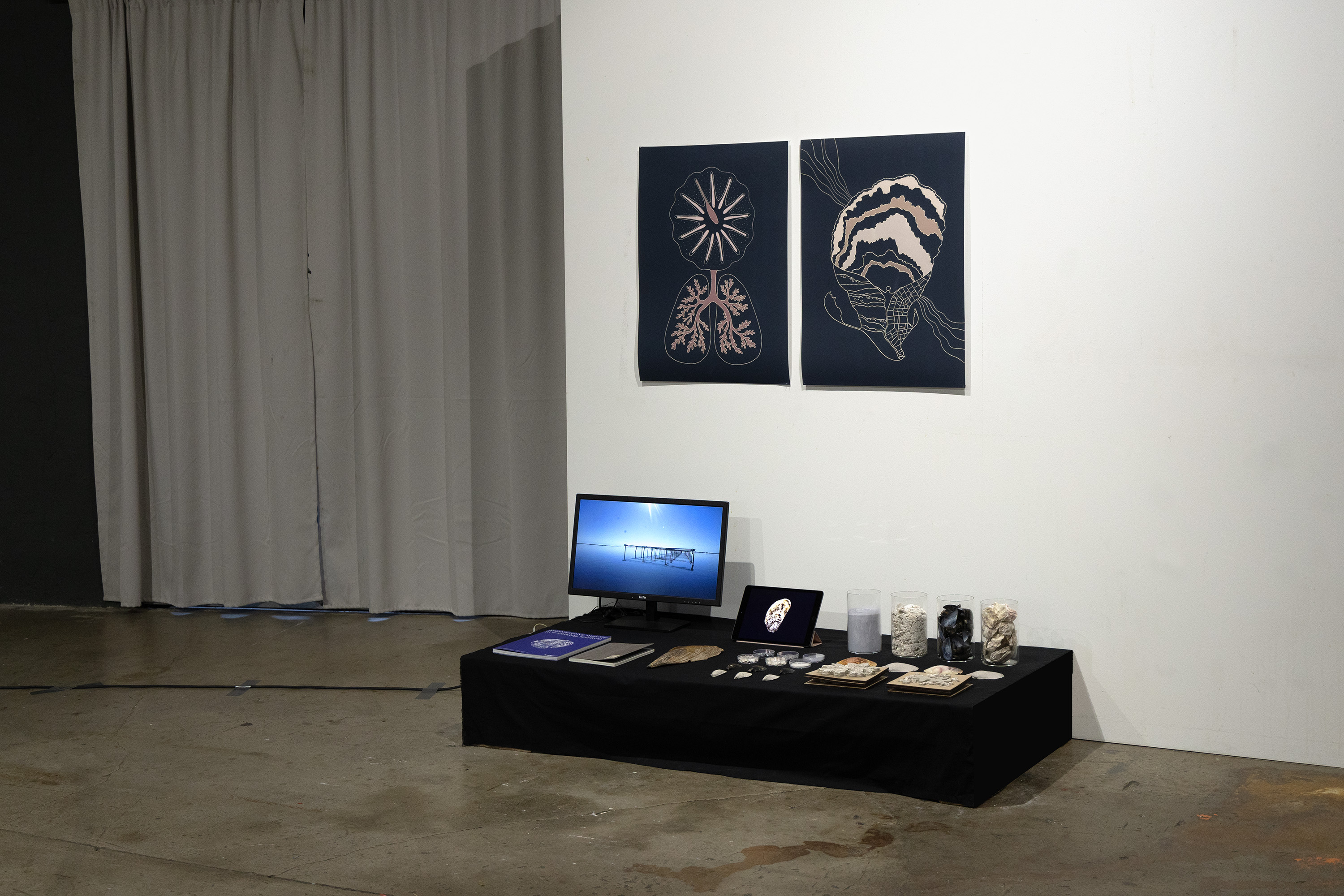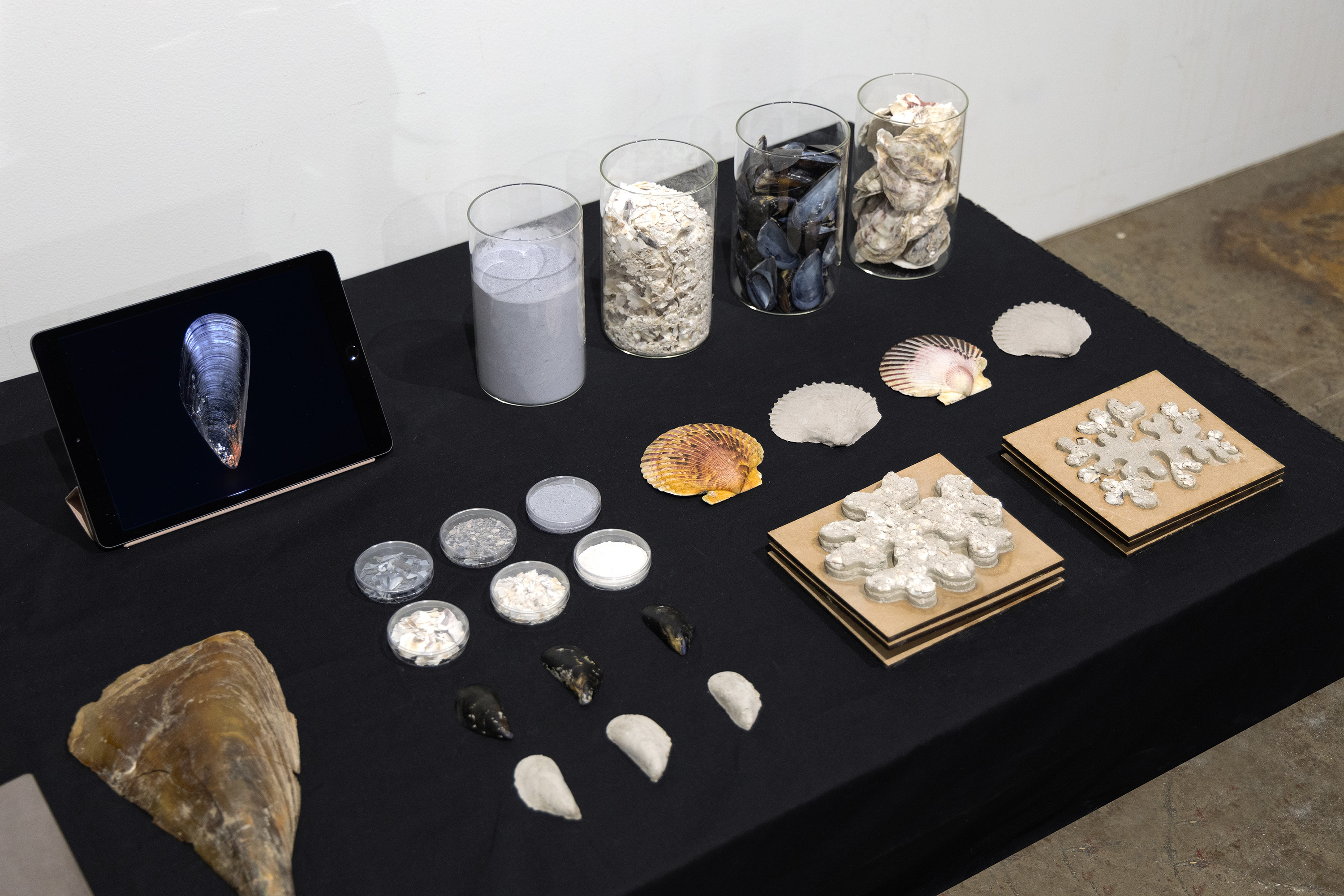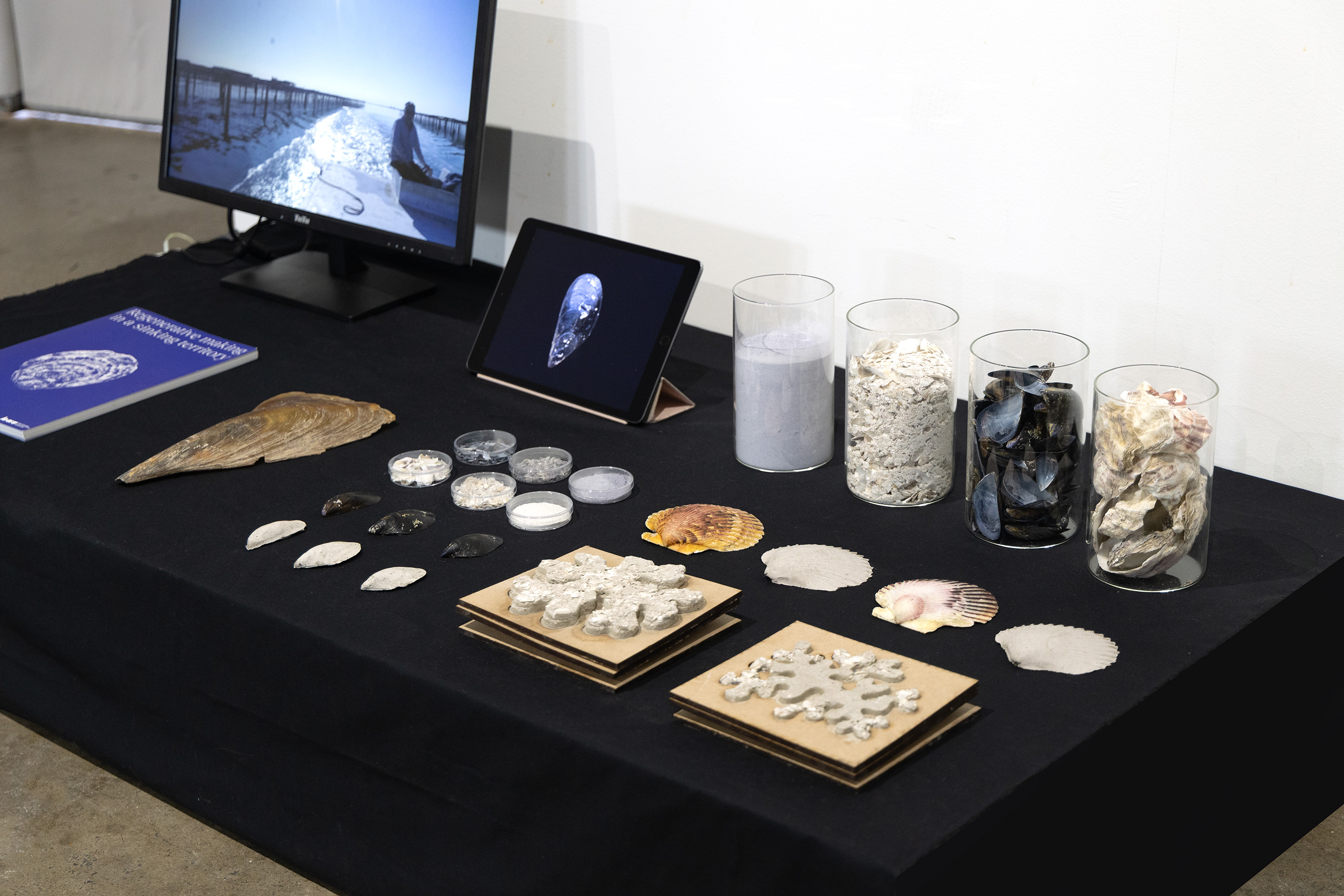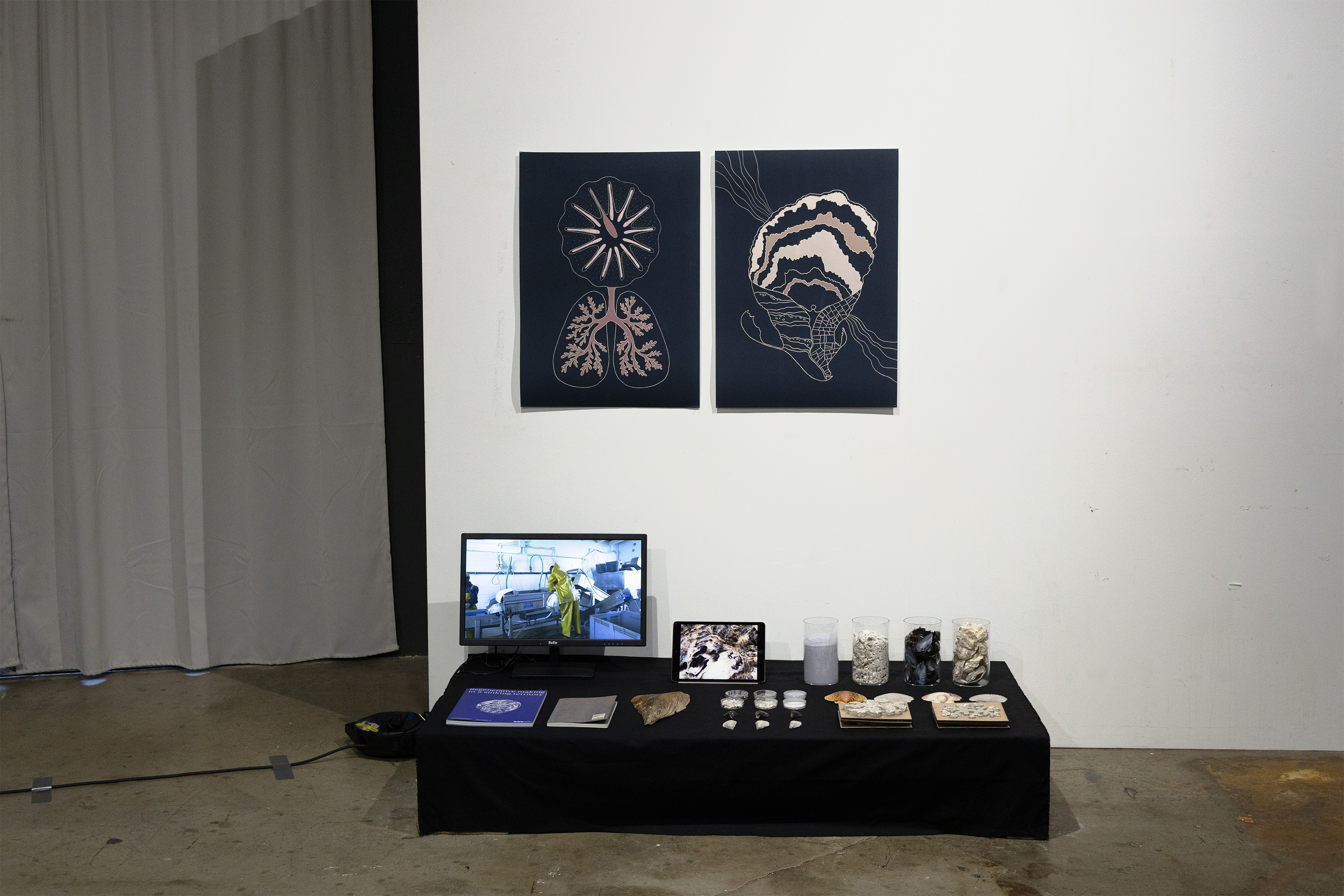This project explores how an ethnographic and material research approach—grounded in local knowledge, an understanding of the ecosystemic role of mollusks, and the revalorization of waste—can guide the design of a regenerative prototype that responds to ecological threats in the intertidal zone of the Ebro Delta. This territory is under threat due to sediment loss, sea level rise, and increasing water temperatures. In response to environmental degradation and biodiversity loss in this coastal ecosystem, the research is structured around two complementary methodological axes.
On the one hand, an ethnographic approach aimed at building relational networks with local communities and their knowledge, as well as with the marine organisms of the delta; and on the other hand, a material exploration of the potential for revalorizing mollusk shell waste generated in the region as a basis for regenerative design, taking into account both habitat and the key role mollusks play in the ecosystem.
Through an interdisciplinary lens and a situated, sensitive approach, this research seeks to articulate human and more-than-human knowledges in order to develop a preliminary proposal oriented toward the regeneration of marine life in this fragile territory. This initial approximation, grounded in active engagement, lays the foundation for long-term development, open to future iterations that integrate design, ecology, and a collaborative perspective in environmental regeneration processes.
On the one hand, an ethnographic approach aimed at building relational networks with local communities and their knowledge, as well as with the marine organisms of the delta; and on the other hand, a material exploration of the potential for revalorizing mollusk shell waste generated in the region as a basis for regenerative design, taking into account both habitat and the key role mollusks play in the ecosystem.
Through an interdisciplinary lens and a situated, sensitive approach, this research seeks to articulate human and more-than-human knowledges in order to develop a preliminary proposal oriented toward the regeneration of marine life in this fragile territory. This initial approximation, grounded in active engagement, lays the foundation for long-term development, open to future iterations that integrate design, ecology, and a collaborative perspective in environmental regeneration processes.


















